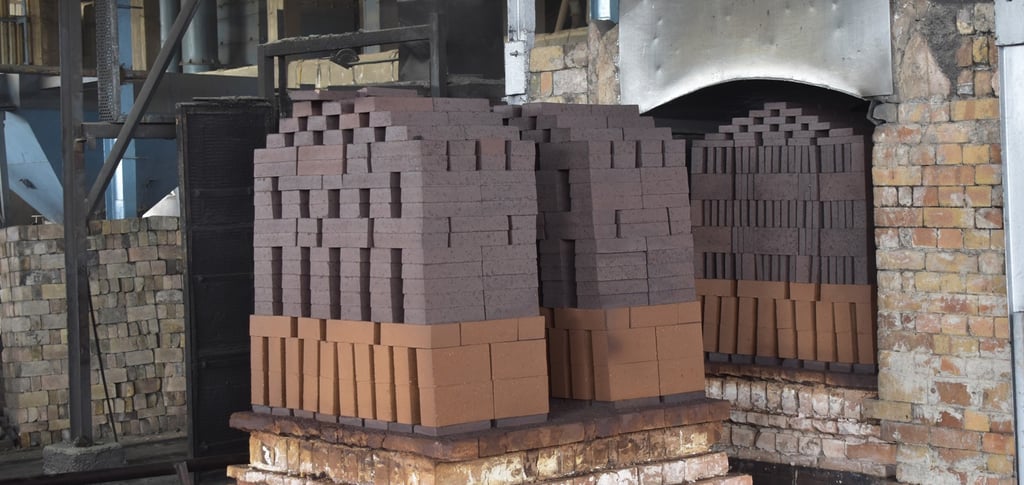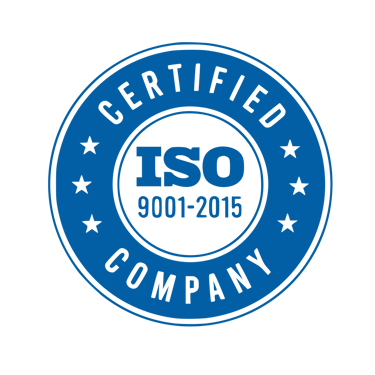How To Start A Lucrative Refractories Distribution Business In Uganda
The Complete Guide to Building a Profitable Industrial Supply Chain in East Africa
HOW TO GUIDE
3 min read


As Uganda's manufacturing, construction, and energy sectors expand, demand for high-temperature-resistant materials like refractories is increasing. Used extensively in cement factories, steel plants, incinerators, and power stations, refractories are critical to sustaining high-efficiency industrial operations.
This guide offers a step-by-step roadmap to launching and scaling a profitable refractories distribution business in Uganda. It includes sourcing, market targeting, regulation navigation, pricing strategies, and growth tactics.
What Are Refractories?
Refractories are materials that retain strength and stability at very high temperatures. They are used to line furnaces, kilns, incinerators, and reactors.
Common Types:
Acidic Refractories: Silica, alumina
Basic Refractories: Magnesia, dolomite
Neutral Refractories: Chromite, graphite
Key Products:
Fire bricks
Monolithic castables
Mortars & ramming masses
Insulating boards and blankets
Precast shapes
Why Start a Refractories Distribution Business in Uganda?
🏢 Booming cement and steel manufacturing sector
⚡ Growth in incineration and power generation projects
🌐 Limited local production creates import dependency
💸 Attractive margins and bulk sales potential
💼 Government focus on industrialization
Market Opportunities in Uganda
Key Demand Sectors:
Cement and clinker manufacturing (Tororo, Hima)
Steel plants and foundries (Jinja Industrial Park)
Sugar factories (boilers)
Waste management (incinerators)
Ceramic tile and brick manufacturers
Target Customers:
Factory procurement managers
Maintenance contractors
Construction material suppliers
Government energy and waste projects
Business Models to Consider
Wholesale to Industrial Buyers and Plants
Retail to Contractors and Resellers
Exclusive Agency for Global Brands
Supplying Turnkey Incinerator Installers
Consignment-Based Sales Through Local Distributors
Common Challenges
⚠️ Heavy and bulky inventory requires storage
⚠️ Product-specific knowledge needed for sales
⚠️ Import logistics and duty classification issues
⚠️ Client price sensitivity vs quality concerns
Step-by-Step Guide to Starting the Business
1. Conduct Market Research
Survey local industrial clusters and current suppliers
Analyze boiler/furnace lifecycles and refractory replacement cycles
Talk to maintenance engineers and procurement departments
2. Register Your Business
Register with the Uganda Registration Services Bureau (URSB)
Obtain a Tax Identification Number (TIN) from URA
Register with Uganda National Bureau of Standards (UNBS) for certification purposes
Apply for import licenses if sourcing from abroad
3. Choose Your Product Focus
Begin with high-demand fire bricks and castables
Add ramming mass, mortar, and insulating products
Later expand to custom precast shapes
4. Source From Quality Suppliers
Import from India, China, Turkey, or South Africa
Prioritize ISO-certified refractory manufacturers
Check for heat resistance, density, thermal shock stability
5. Establish Warehousing & Logistics
Rent a warehouse in Kampala or near Jinja Industrial Hub
Maintain temperature- and humidity-controlled storage
Partner with heavy logistics transporters for nationwide delivery
6. Build a Technical Sales Network
Hire sales engineers or train staff in refractory applications
Partner with maintenance firms and construction engineers
Use demo samples and data sheets for client meetings
7. Marketing Strategy
Attend trade fairs and industrial expos (e.g., Uganda Manufacturers Association Expo)
Leverage LinkedIn to reach procurement heads
Offer seminars or webinars on refractory maintenance
Create educational content for plant engineers
8. After-Sales Support
Provide technical advisory on selection and usage
Ensure inventory of popular shapes and mixes for fast delivery
Offer training on installation and maintenance
Estimated Startup Costs
Business Registration: $250 – $500
Initial Inventory Procurement: $10,000 – $40,000
Warehouse Setup: $2,000 – $5,000
Marketing & Branding: $1,000 – $3,000
Sales Team & Technical Staff: $2,000 – $6,000
Import & Licensing Fees: $1,500 – $3,500
Total Estimate: $16,750 – $58,000
Expected Margins:
Fire bricks & castables (30% – 45%)
Mortars & insulation (40% – 60%)
Custom solutions (up to 70%)
Tips for Success
Prioritize product quality—substandard refractories can damage furnaces
Educate clients on long-term cost savings
Keep safety datasheets and technical specs ready
Offer turnkey supply + advisory services
Maintain strong after-sales response
Frequently Asked Questions (FAQs)
Q1: Do I need a license to import refractories into Uganda?
Yes, registration with UNBS and URA is necessary, and import documents must classify goods under correct HS codes.
Q2: Who are my biggest clients likely to be?
Cement plants, steel factories, sugar mills, incinerator installers, and energy project contractors.
Q3: Is local competition strong?
Competition exists but is limited, especially in niche products and quality imports.
Q4: Can I export to neighboring countries?
Yes, Uganda's location allows access to Rwanda, South Sudan, and eastern DRC.
Q5: How often do industries replace refractories?
Usually every 12–24 months depending on operating conditions and maintenance.
Conclusion
With a strong push toward industrialization and waste management in Uganda, the demand for high-quality refractory materials is on the rise. Distributors who offer consistent quality, technical know-how, and dependable service can build a sustainable and scalable business.
If you're ready to support Uganda's industrial backbone while tapping into a high-margin niche, refractories distribution is a smart and future-ready business to consider.

